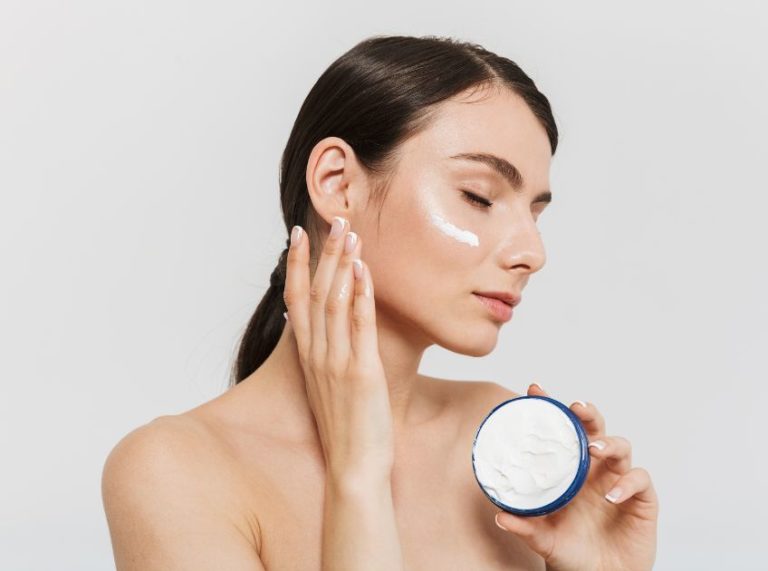
Important: This article is for informational purposes only. Please read our full disclaimer for more details.
Tired of dull, uneven skin tone and synthetic products with empty promises? If you’re hunting for a simple, natural remedy to lighten and brighten your skin, carrot oil might be your new secret weapon. It’s packed with nutrients that not only nourish your skin but help reduce hyperpigmentation and dark spots over time.
Here’s how to make carrot oil at home—and why it might be just what your skincare routine needs.
Why Carrot Oil Deserves a Spot in Your Skincare Routine
- Brightens dull skin and improves complexion
- Fades acne scars and hyperpigmentation
- Rich in antioxidants like beta-carotene and Vitamin A
- Keeps skin moisturized without feeling greasy
- Boosts collagen production for firmer, youthful skin
The Science Behind Carrot Oil’s Skin Benefits
Carrots (1) are rich in beta-carotene, a natural pigment that converts into Vitamin A (retinol)(2) in the skin. Retinol helps speed up cell turnover, fades pigmentation, and promotes a more even tone.
Vitamin E (3), often infused in carrot oil recipes, protects skin from oxidative damage and improves elasticity.
How Carrot Oil Works: Key Ingredients Explained
- Carrot (Beta-carotene): Reduces melanin buildup and evens out tone
- Carrier Oil (e.g., Jojoba or Coconut): Delivers nutrients deep into the skin
- Vitamin E Capsules (optional): Enhances the antioxidant level
- Turmeric Powder (optional): Natural skin brightener with anti-inflammatory properties
Adjust ingredient quantities depending on skin type:
- Oily skin: Use lighter oils like grapeseed or jojoba
- Dry skin: Choose coconut or avocado oil for deeper hydration
When to Hit Pause: Signs to Stop Using
Discontinue use if you notice:
- Redness or itching after application
- Breakouts, especially if you have acne-prone skin
- Any burning sensation or sensitivity to sunlight
Always do a patch test on your arm before applying it to your face.
Is Carrot Oil Safe to Use Daily?
Yes—for most skin types.
However, due to its potency, apply carrot oil 2–3 times a week initially. Overuse can sometimes cause orange-tinted skin due to the high beta-carotene content.
What Hair Types Can Benefit from Carrot Oil?
Carrot oil isn’t just for skin—it’s a hair-friendly elixir too.
Best for:
- Dry, brittle hair (adds moisture and shine)
- Curly and coily hair types (reduces breakage)
- Dull hair lacking luster
DIY Recipe: How to Make Carrot Oil at Home
Ingredients
- 1 large organic carrot (grated)
- 1 cup carrier oil (jojoba, coconut, or olive oil)
- 1–2 Vitamin E capsules (optional)
- ½ tsp turmeric powder (optional)
Directions
- Grate the carrot finely and dry slightly using a paper towel.
- Add it to a saucepan with your carrier oil.
- Simmer on low heat for 2–3 hours, stirring occasionally.
- Let it cool, strain using cheesecloth or a fine sieve.
- Store in a glass jar in a cool, dark place.
Make Your Own Gentle Carrot Face Wash
This DIY face wash works well alongside your carrot oil for a complete glow-up.
Ingredients
- 2 tbsp carrot juice
- 1 tbsp raw honey
- 2 tbsp rose water
- 1 tsp aloe vera gel
Directions
- Mix all ingredients in a small bowl.
- Massage onto damp face for 1 minute.
- Rinse with lukewarm water and pat dry.
Use it 2–3 times a week for a brighter, softer complexion.
Final Thoughts
Carrot oil is a game-changer if you’re looking for a gentle, natural way to lighten skin and fade pigmentation. It’s easy to make at home, safe for most skin types, and can be customized with ingredients that suit your needs. Just remember: consistency is key, and always listen to how your skin responds.
Frequently Asked Questions (FAQ’S)
1. Can I leave carrot oil on my face overnight?
A. Yes, if your skin tolerates it well. Start with a few hours and observe how your skin reacts before using it overnight.
2. How long does homemade carrot oil last?
A. Stored properly in a dark glass bottle, it can last up to 4–6 months. Refrigeration extends its shelf life.
3. Does carrot oil clog pores?
A. Carrot oil itself is non-comedogenic, but the carrier oil you use matters. Choose light oils like jojoba if you’re acne-prone.















